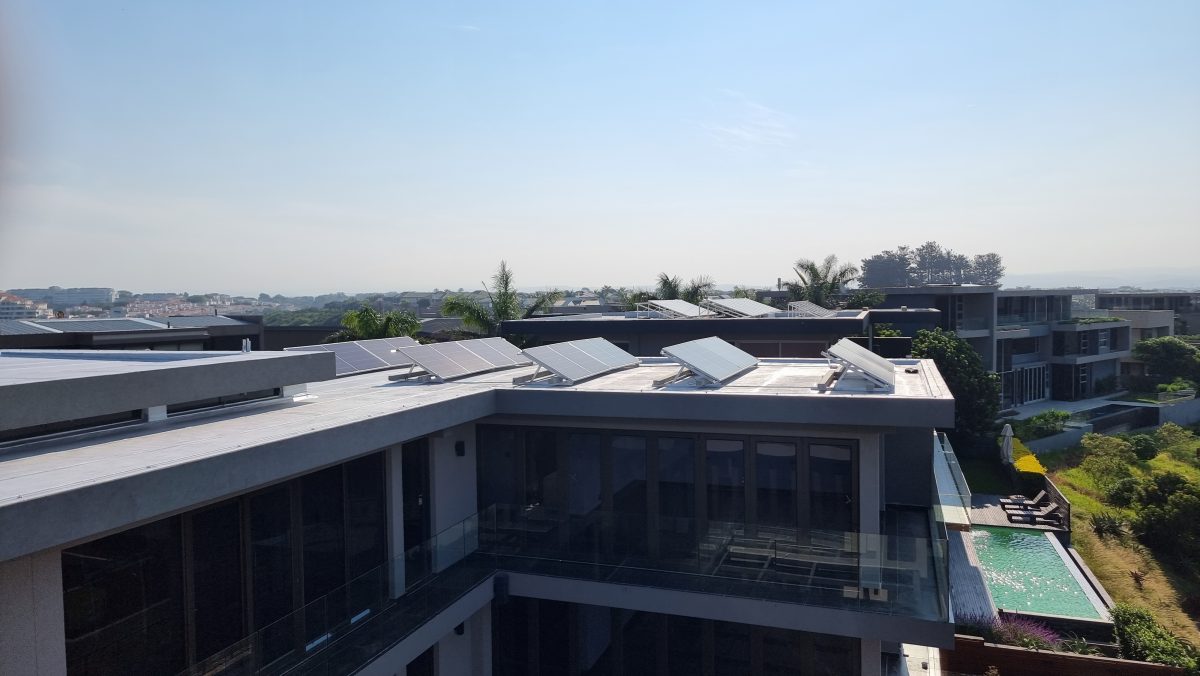With the 9.6% hike in electricity costs in April, the announcement of renewed load shedding and very little good news on the horizon when it comes to the national power supply, many are – rightfully – considering installing a solar-powered system. But deciding on solar power is just the first step, the next step is deciding on the type of solar power to install. Hybrid solar power systems are fast becoming a popular option for residential and commercial users. Here’s a look at this particular system and its advantages.
What is hybrid solar power?
Hybrid solar power is actually the best of both worlds. The system is tied to a solar grid which draws on solar energy to power appliances, but when this isn’t possible, it draws on battery energy for later use. This combination of on-grid and off-grid solar energy systems provides uninterrupted energy supply.
What are the components of hybrid solar power?
The hybrid solar system is made up of a number of high-functioning parts that work in collaboration to provide a reliable energy source for residents or businesses. Here’s an overview of the components that make up the hybrid system.
- Solar panels: This is the piece of equipment that most people think about when they hear ‘solar power’. The solar panels are the base of the energy system whereby solar radiation (photons) fall on the solar panel to generate electricity. The two types of panels are
- Monocrystalline panels: These consist of singular large crystals which are darker in colour with the corners of cells usually missing.
- Polycrystalline panels: These consist of multiple smaller crystals which are light or dark blue in colour and have variation in texture where some patches are lighter than others.
- Batteries: These are vital for storing any surplus energy when the sun shines for you to rely on when it’s cloud and solar power is limited. When it comes to solar power systems, rechargeable batteries like lead-acid or lithium are generally the best.
- Hybrid inverter: This is used to convert the DC energy that is captured by the solar panel and is then converted into the useful AC energy by the hybrid inverter. The inverter monitors the amount of energy being used or stored in the battery.
- Alternating Current Distribution Box (ACDB): If there’s any problem in the hybrid inverter, the ACDB will protect your appliances.
- Direct Current Distribution Box (DCDB): This combines multiple strings of solar panels into one and also consists of protection components.
- Charge controller: This controls the amount of charge going into the battery to prevent the battery from undercharging and increasing its lifespan.
What are the advantages of hybrid solar power?
There are many reasons to invest in a hybrid solar system to meet your electrical needs. Here’s a look at the biggest advantages.
- Uninterrupted power
Because the hybrid solar power system has battery power backup, you’re enjoying uninterrupted power supply, even during times when the sun is shining. The solar energy is stored in the battery and drawn into the system during these down times, so it’s never a case of going without energy.
- It’s scalable
The hybrid solar power system is a great energy system to start with as it’s completely expandable. This means you can start out small and keep adding to the system, buying more panels and batteries, as budgets allow.
- Power optimisation
When you switch on a backup power system like generators, you will have high power from the get-go – which isn’t always beneficial. Your hybrid solar system, in comparison, will adjust the energy supply according to the number of connected devices so that you’re not wasting energy.
- No waste
Those bright, sunshine-filled days won’t go to waste because all of that excess solar power is stored in the battery backup, which means there’s no energy loss.
- Minimal maintenance
The capital outlay of a solar system can be high, but when you know that’s the biggest cost, you can budget for this. With the hybrid solar power system, you can be assured of minimal follow-up maintenance requirements such as refuelling and servicing so you’re saving in the long-run.
- Energy independence
There’s no more worry when you get the alert that loadshedding has – once again – been implemented. With the hybrid solar power system, you’re not reliant on the national grid so there’s no stress about power outages and appliances damaged by surges.
- It’s sustainable
There is only one option when it comes to the environment and that’s choosing the path of sustainability. With a hybrid solar power, you’re doing your part for the planet by drawing on a renewable energy source.
There’s no time like the present to get off the grid and go solar. To find out more about this valuable investment, start by contacting the industry experts – JUPS. They stock all the best in solar solutions, assist with installation and any follow-up requirements for a hassle-free solar experience.
Share this Post

